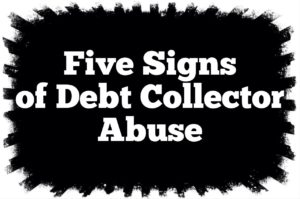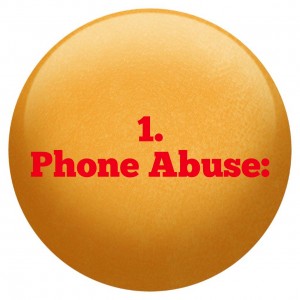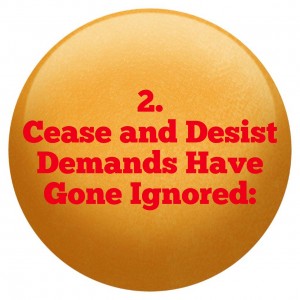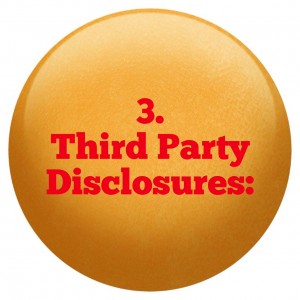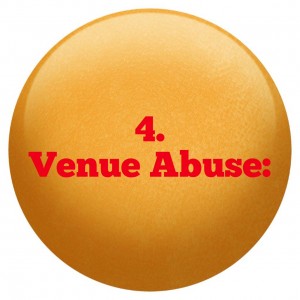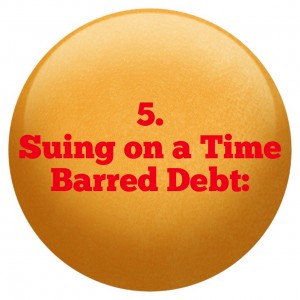By:Â Robert J. Nahoum
THE PROBLEM:
Does any of this sound familiar – you lost your job and have fallen behind on bills; or maybe you got sick or hurt and your insurance doesn’t cover all of your medical expenses -the doctor and bills are piling up; or perhaps you just graduated from college and can’t find a job so you have been living g on your credit cards or even defaulted on your student loans.
No matter what brought you to this point, adding insult to injury, when you can’t pay your bills you are going to hear from the debt collectors.
Understandably, anyone who has dealt with debt collectors feels abused, harassed and bullied. This is due in large part to the heavy-handed tactics of the debt collection agents. Most debt collection agents are paid in part on a commission basis. The more they can get from you – the more they can earn. This is a recipe for abuse. But, is it always abuse? Is it always harassment? How do you know when a debt collect has crossed the line and what can you do about it?
THE RULE:
Federal debt collection laws, known as the Fair Debt Collection Practices Act (FDCPA for short), regulates the conduct of third party debt collectors (collecting someone else’s debt). The FDCPA generally prohibits debt collectors from using abusive debt collection tactics that are false, misleading and harassing.
Here are five signs of debt collection abuse:
It is abusive for debt collectors to call consumers before 8, after 9 pm or to call “unreasonable number of timesâ€.
Once a debt collector has been notified that a consumer refuses to pay a debtor that the consumer wishes the debt collector to cease further communication with, the debt collector must not communicate further with the consumer. Any further communication is generally considered abusive.
Without a consumer’s prior consent, it is abusive for a debt collector to communicate with any third party about the consumer’s debt except to speak with the consumer’s attorney or to acquire location information about the consumer.
It is abusive for a debt collector to sue a consumer in the collection of a debt anywhere other than the judicial district in which the consumer resides at the commencement of the lawsuit or where the consumer signed the contract that gave rise to the debt.
It is abusive for a debt collector to sue a consumer on a debt that is beyond the statue of limitations (also referred to as being “time barredâ€).
WHAT YOU SHOULD DO:
If a debt collector has engaged in what you to believe to be abusive conduct, contact a consumer protection attorney familiar with the FDCPA.
The FDCPA includes a private right of action under which a consumer can sue a debt collectorfor FDCPAviolations. If a debt collector is found to have violated the FDCPA, he or she may recover up to $1,000.00 in statutory damages, plus actual damages (for example pain and suffering) and reasonable attorneys’ fees.
If you need help settling or defending a debt collection law suit, stopping harassing debt collectors or suing a debt collector, contact us today to see what we can do for you.
The Law Offices of Robert J. Nahoum, P.C
(845) 232-0202
www.nahoumlaw.com
info@nahoumlaw.com

